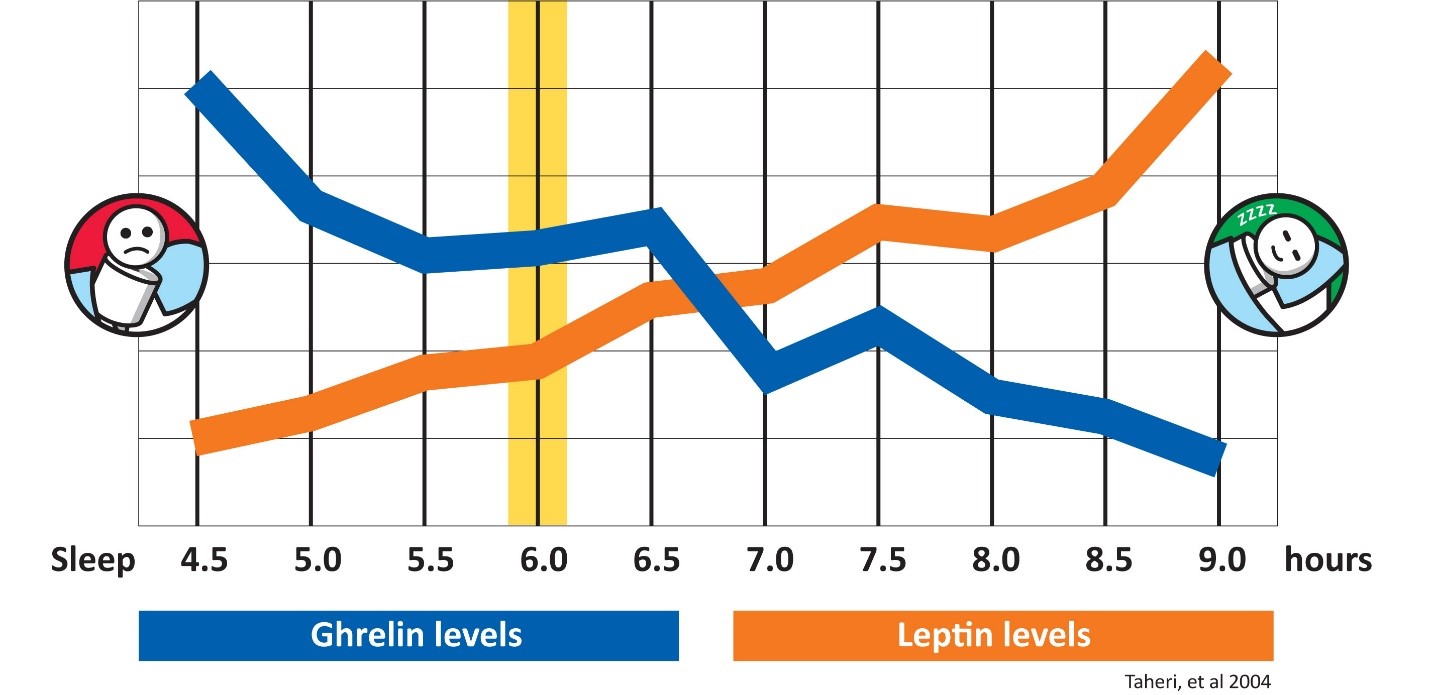Not getting enough sleep could be affecting your metabolism – and possibly your weight.
"It could cancel out all your healthy efforts," said Dr. Emily Cooper from the Diabesity Research Foundation.
"So if you don't consistently get at least eight hours of sleep then your overall performance declines, your muscles don't recover properly and regenerate, and your metabolism can slow down."
Lack of sleep could also be the reason for weight gain.
The ghrelin hormone and leptin hormone regulate your body weight, metabolism and appetite balance while you are asleep.
With less sleep the hunger hormone ghrelin spikes and the hormone leptin from your body fat drops, telling your brain that your body is hungry and slowing your metabolism to conserve energy.
If this happens recurrently, it could cause you to pack on extra pounds and have an insatiable appetite.
"What's really interesting is that studies have shown that if infants get less than 12 hours of sleep on average by age three, they are more likely to show signs of being overweight" said Dr. Emily.
"Children who chronically lacked sleep had 15% higher ghrelin levels and 15% lower leptin levels and were found to have more risk of obesity by age 32 than those who had adequate sleep during childhood".
But the benefits of a good night of sleep does not stop there.
A recent study of 18-40 year-olds showed that sleep reduction increased endothelial dysfunction, a blood vessel problem also seen in smokers that can increase risk of cardiovascular disease.
And for men, insufficient sleep may lead to lower testosterone levels which is a key hormone for bone density. Chronic insufficient sleep also increases risk of high blood pressure and high cholesterol for men and women.
In athletes, sleep deficits can lead to poor injury healing and reduced strength.

